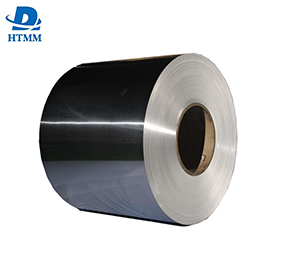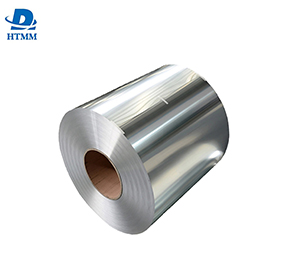
Understanding the risks associated with aluminum foil
A thin, flexible film formed of aluminum metal is known as aluminum foil. It can be used to wrap food, cover baking pans, and store leftovers, among other things, in the home. It's important to remember the dangers that could arise from using aluminum foil that is contaminated or of poor quality. These dangers include the possibility of microbiological development, metal transfer to food, and chemical contamination from faulty manufacturing techniques. To reduce these hazards and guarantee food safety, strict production standards must be followed.
current laws and recommendations for food safety
Around the world, a number of laws and regulations have been passed to safeguard the welfare and health of consumers. Strict food safety standards are created and enforced by regulatory organizations like the Food and Drug Administration (FDA) in the United States and the European Food Safety Authority (EFSA) in Europe. Producing jumbo rolls of aluminum foil is subject to specific rules as well. Aspects including the caliber and security of the materials utilized, production procedures, hygienic practices, and proper product labeling are all covered by these regulations.
The essentials of ensuring food safety in the production of aluminum foil.
A. Quality control procedures
The dedication to food safety in aluminum foil manufacture is based on high-quality raw materials. Producers are only permitted to use aluminum that complies with certain requirements in order to ensure the integrity and safety of their products. This involves carefully choosing and testing raw materials in order to prevent contamination and preserve quality. At several phases of the production process, thorough testing and inspection methods are crucial for identifying any dangers or flaws. These steps include evaluating the thickness, strength, tensile strength, and other quality indicators to ensure the film conforms with the necessary safety requirements.
B. Hygiene and sanitation
To avoid contamination of any kind during the manufacturing process, manufacturing facilities must maintain a high level of cleanliness and hygiene requirements. Specific protocols must be followed to ensure cleanliness, such as routinely cleaning and sterilizing industrial facilities and equipment. Employees who exercise basic hygiene, such as routine hand washing and wearing the right protective clothing, can lessen the chance of introducing contaminants. Protocols should be developed in order to prevent cross-contamination when handling completed goods and during various production stages. Effective pest management strategies are also necessary to prevent infestations and keep the workplace clean.
This objective is served by industry standards and certification.
A. Organizations that develop standards for the industry
Industry standards groups like the International Organization for Standardization (ISO) and ASTM International are crucial for defining and maintaining food safety regulations for the production of aluminum foil. For a variety of manufacturing-related issues, including the choice of raw materials, production methods, hygienic practices, and product labeling, these organizations develop and defend industry standards. These standards should be met by manufacturers in order to guarantee that food safety laws are constantly obeyed.
The Advantages of Conformity
For manufacturers of aluminum foil, adhering to industry standards and earning certifications has numerous advantages. It essentially makes sure that products are always high-quality and safe, hence lowering the possibility of food safety events and the associated liabilities. Second, compliance promotes customer loyalty and brand reputation by increasing consumer confidence and trust in the business. Thirdly, adherence to standards encourages market rivalry by highlighting the manufacturer's dedication to providing high-quality goods. Entry into markets where food safety is highly valued around the world is also made simpler by compliance.
 Case Studies and Examples
Case Studies and ExamplesA. Real-world Case Studies on Food Safety
Actual incidents of food safety difficulties utilizing subpar aluminum foil are researched in order to show the risks that could result from poor manufacturing techniques. The significance of upholding stringent standards throughout the production process is demonstrated by incidents like chemical contamination, metal transfer, or microbial growth caused by inadequate quality control processes. These incidents serve as sobering reminders of how crucial it is to keep strict food safety regulations in order to safeguard customers.
B. Manufacturers of HTMM Foil Success Stories
The success stories of aluminum foil producers, like HTMM, that give food safety a top priority give concrete examples of the advantages that come from strict adherence to high standards. To ensure the safety of the food they produce, these businesses employ strict quality control procedures, cutting-edge testing methods, and ongoing process improvements. Their success tales demonstrate the link between prioritizing food safety and gaining the trust and loyalty of customers.
C. Effects on Market Reputation and Consumer Trust
The reputation of the industry and consumer confidence are significantly impacted by maintaining high standards in aluminum foil production. When a company prioritizes food safety by establishing quality control procedures, keeping industry standards, and obtaining relevant certifications, customers are more likely to trust the products they purchase from that company. This trust leads to sustained client loyalty, outstanding word-of-mouth recommendations, and a better competitive position.
The production of large rolls of aluminum foil for household usage must take food safety seriously. To guarantee that the foil is squeaky clean and does not damage consumers' health, specific rules and standards must be followed. Using the proper packaging techniques, upholding strict standards of cleanliness and hygienic practices, and putting in place reliable quality control systems are all essential steps in ensuring food safety throughout the production process. The dedication to providing dependable and safe aluminum foil products is further strengthened by observing industry standards and acquiring the necessary certifications.
To guarantee customer safety and confidence in the use of aluminum foil for residential purposes, industry monitoring is required. Manufacturers can help create a food supply chain that is safer and healthier for customers by putting a high priority on food safety.






